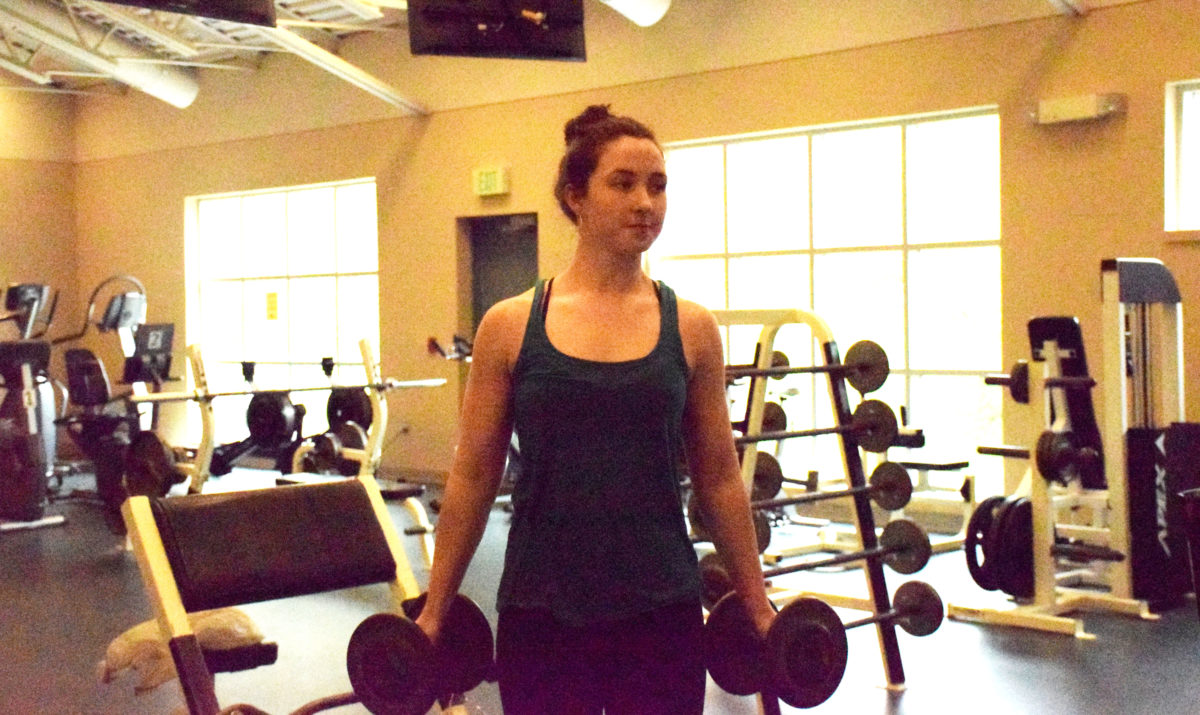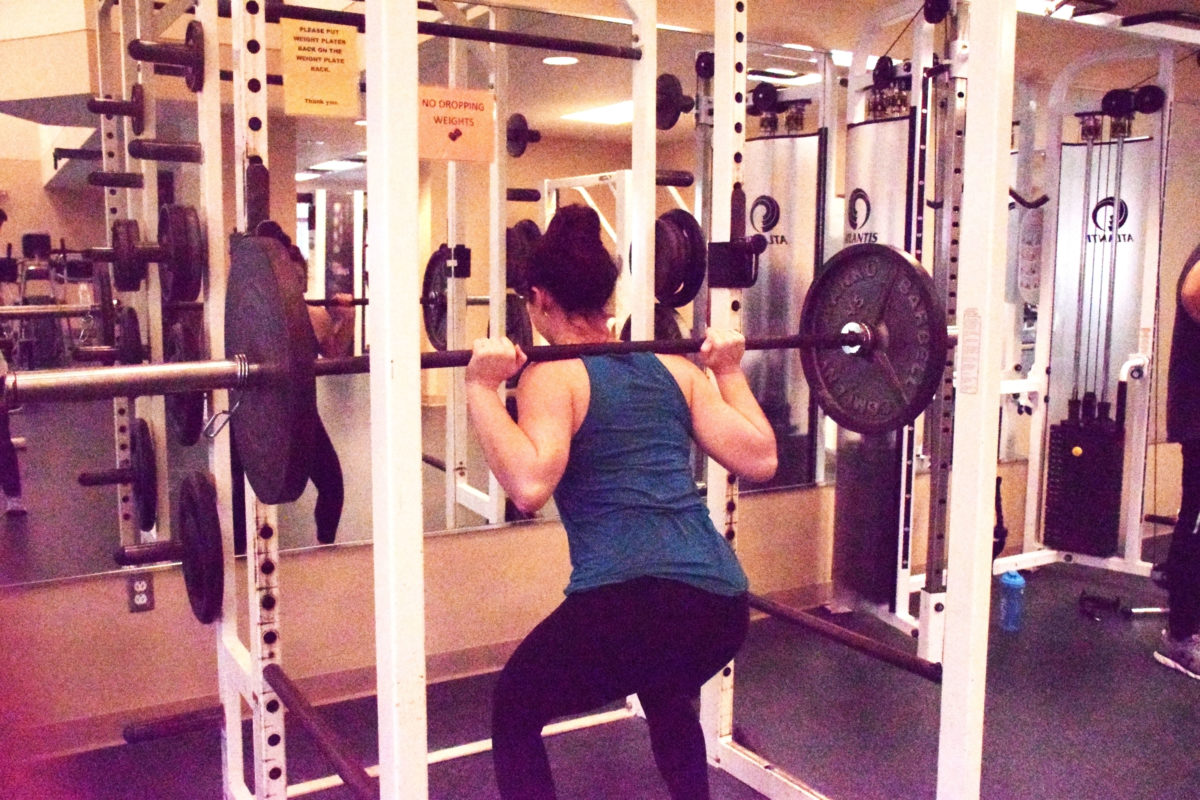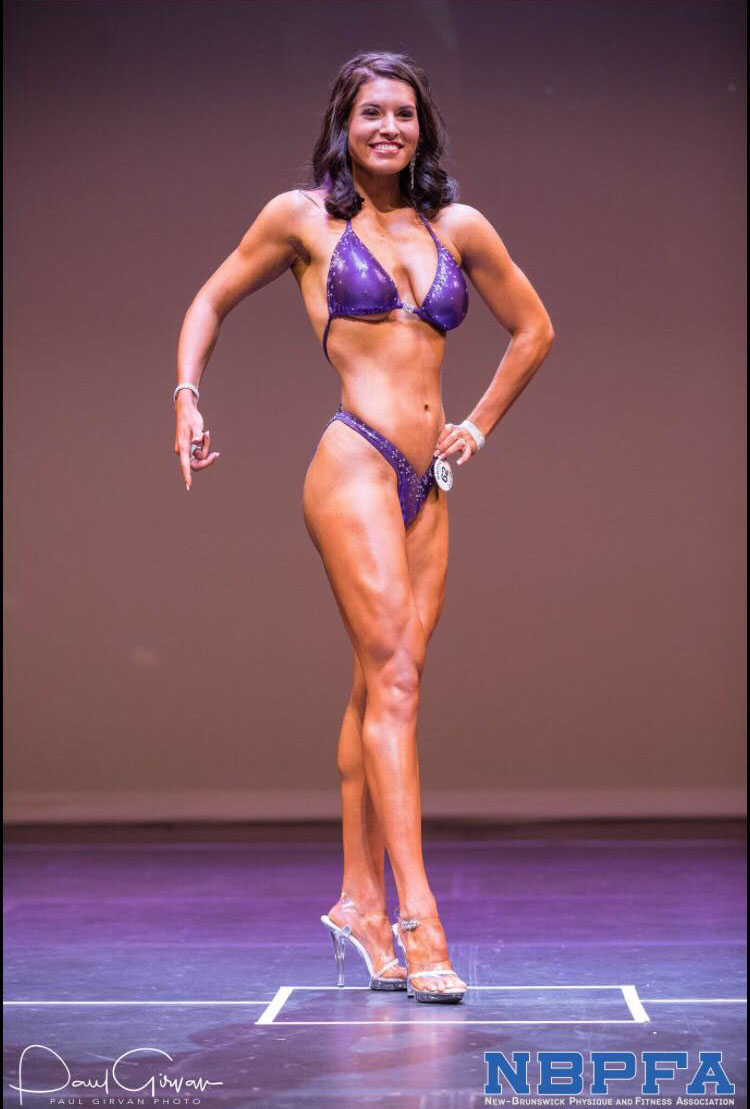In a sport that is self-motivated, the hardest part can often be forcing yourself to continue. Katie Corlett is no stranger to this.
“The biggest challenge, I find, is mentally,” said Corlett.
“The body will do whatever your mind tells it to. If you’re in a negative head space filled with self-doubt, it is very hard to complete the prep.”
Corlett is a fourth year St. Thomas University student honouring in sociology and majoring in English. She started bodybuilding after injuring herself in her second year playing basketball. As a student who played sports year-round ever since she was young, not being able to play meant she had to focus her attention on something else.
“What interested me was just the idea of having a goal. The motivation for the goal wasn’t so much of a physical end, but a mental one,” said Corlett.
“I just wanted some structure and to be able to work toward something everyday.”
For STU student Lauren Broad, watching a family friend win a competition peaked her interest in bodybuilding.
“When I was 13 or 14 my mom would go to bodybuilding shows because she was into it … so I went and watched a few shows, and then about a year later I went and watched a show by myself,” said Broad.
“I watched Jessica Wells win. [She] is my cousin’s friend from Moncton. She won it all and I was hooked after that.”
Both Corlett and Broad said there are challenges to participating in the sport. When training for a competition, they must adhere to strict workout schedules and diets. Broad said getting into that mindset was hard at first.

“I really had to wrap my mind around ‘this is what I have to eat and that’s it.’ I can’t go eat a sandwich. I have to make turkey and vegetables and that’s it,” said Broad.
“That semester I lived with my boyfriend at the time who was also into bodybuilding and he ended up doing it with me. He played a big part in cooking my meals and getting me up at five in the morning to go do cardio.”
Corlett said that while it’s becoming less of a male-dominated sport, there are still some gender-based challenges when women compete.
“Females are judged, in addition to their physique, on their hair, makeup, nails and quality of their [swim] suit and this is something the men don’t have to worry about,” said Corlett.
She has received positive comments from people, but said other women in the sport are not as lucky.
“I really have only gotten positive feedback, both in person and on social media, but I think that is due to the fact that my body really hasn’t gotten to the point where it has broken any social norms,” said Corlett.
“I see very muscular female bodybuilders on Instagram who have a ridiculous amount of troll comments.”

Corlett has decided to focus her honours thesis on the female bodybuilders and how they interpret femininity.
“Female bodybuilders have been described in literature as a bit of a paradox, they’re masculine and feminine at the same time,” she said.
Broad said the sport makes her feel good and she encourages anyone to try it.
“After the show I ate everything I could get my hands on, but I still wanted to go to the gym. I still go to the gym everyday. Just putting on more muscle and challenging yourself – it makes you feel good to stay active.”

